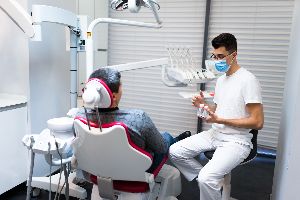
If you’ve had oral health issues, your dentist may recommend replacing lost teeth with dental implants. While the technical jargon surrounding implants can seem intimidating, they’re simply part of a multi-piece system that creates long-lasting, attractive replacement teeth. Learn more about how they can help you regain confidence in your smile by reading these answers to common questions about the process.
What You Should Know Before Getting Dental Implants
What are dental implants?
A dental implant is a permanent fixture that is surgically placed into the jawbone and fuses it, becoming a firm support for artificial teeth. Implants serve to stop replacement the teeth from shifting or causing bone damage. Dental implants are made of titanium alloy; since the metal is non-reactive, those with sensitivities don’t have to worry about allergic reactions. It’s also highly durable, so properly cared for implants can last a lifetime.
Are they compatible with dentures?

Dentures can’t be converted into implants, but a skilled dentist might recommend implants to support existing dentures that are in good condition. This can be done by modifying the dentures to clip onto stabilizing implants. Dentures can also be permanently fixed to titanium posts. In this case, they should only be removed or adjusted by an oral care professional.
What is surgery like?
The dentist will numb the area with a local anesthetic and may prescribe painkillers to assist with recovery. For most patients, over-the-counter medications, such as ibuprofen, suffice for managing any discomfort.
After surgery, patients will temporarily need to follow a modified diet that focuses on soft foods and minimal chewing. It can take anywhere from three to six months for the healing process to be complete. Once the gums have accepted the implant completely, you can move on to the next step of getting replacement teeth fitted to the posts.
Do they require special care?
Although implants aren’t made of organic material, the health of the surrounding gums is vital to their success. This means patients with implants should follow the same oral care routines that are needed for natural teeth. Use regular brushing, flossing, and dental hygiene appointments to help the implant sites stay healthy and functional.
If you’re interested in exploring how dental implants could help your oral health, contact Oral Surgery Center, S.C. in Baraboo, WI. Dr. Anderson and his skilled staff use minimally invasive, state-of-the-art techniques to improve the success of each procedure. Aware that dental surgery can be daunting, they work hard to put patients at ease and guide them through the process. For a more in-depth look at how dental implants work, visit their educational website. To schedule an appointment, call (608) 356-2112.
About the Business
(11 reviews)
Have a question? Ask the experts!
Send your question

